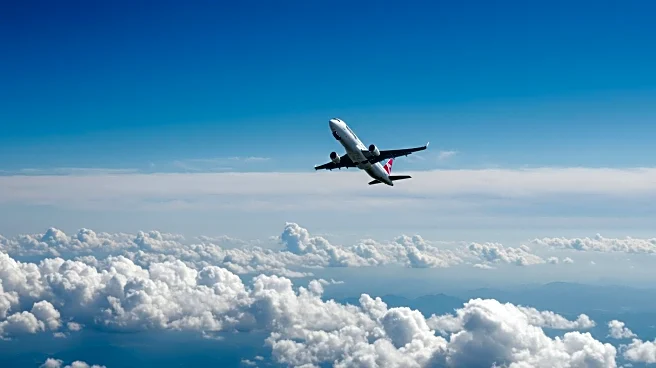What's Happening?
The Australian Competition and Consumer Commission (ACCC) has reported that domestic air travel in Australia has returned to pre-pandemic levels, although the available seat capacity has not kept pace with demand. The withdrawal of Tigerair in 2020 significantly reduced low-cost travel options, leading to higher prices. Despite a 12.3% decrease in jet fuel prices, airfares have increased slightly. The Qantas Group and Virgin Australia are expected to receive new aircraft in late 2025, which may help address capacity issues. Meanwhile, on-time performance for domestic flights has improved, with airlines like Virgin Australia and Jetstar achieving high punctuality rates.
Why It's Important?
The limited capacity in the domestic airline market has resulted in higher airfares, affecting consumer affordability and travel accessibility. The situation highlights the impact of reduced competition following Tigerair's exit, emphasizing the need for increased capacity to meet rising demand. The improvement in on-time performance is a positive development, enhancing consumer confidence in flight reliability. The anticipated arrival of new aircraft could potentially alleviate some capacity constraints, but the current market dynamics suggest ongoing challenges for travelers seeking affordable options.
What's Next?
As new aircraft are integrated into fleets, airlines may gradually expand capacity, potentially stabilizing or reducing airfares. The ACCC will continue monitoring cancellation rates and expects airlines to improve where necessary. Consumers are encouraged to consider the value of frequent flyer programs, which offer benefits but also have drawbacks. The market will likely see adjustments as airlines respond to capacity and demand fluctuations.









